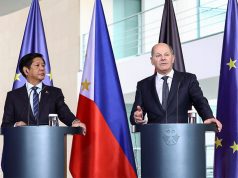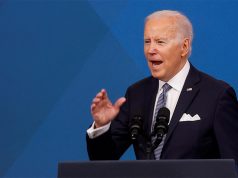
BERLIN — Wirecard’s auditor has refused to sign off its 2019 accounts over a missing $2.1 billion ($1 = 0.8912 euros), sending its shares down more than 60% as the German payments firm said the delay could cause billions in loans to be called in as soon as Friday.
EY was unable to confirm the existence of 1.9 billion euros ($2.1 billion) in cash balances on trust accounts, representing around a quarter of its balance sheet, Wirecard said, adding that there was evidence of “spurious balance confirmations”.
Chief Executive Markus Braun said in Thursday’s statement that Wirecard, which was founded in 1999, was urgently seeking to clarify the balances in question.
“It is currently unclear whether fraudulent transactions to the detriment of Wirecard AG have occurred. Wirecard AG will file a complaint against unknown persons,” Braun said.
Wirecard later added that it had appointed James Freis as management board for compliance, replacing board member Jan Marsalek with immediate effect.
The firm also warned that a failure to provide certified annual and consolidated statements by Friday would allow approximately 2 billion euros in loans to be terminated.
In-house auditor EY had regularly approved Wirecard’s accounts in recent years, and its refusal to sign off for 2019 confirms failings found in an external probe by KPMG in April.
Thursday’s twist is a stark reversal of fortune for the Munich-based fintech, which was lauded as a homegrown success and propelled into Germany’s blue-chip DAX index in 2018 at the expense of Commerzbank.
Wirecard has long been a target of short sellers who have questioned its financials and “shorted” its stock, which fell by 60% in Frankfurt, wiping 8 billion euros off its market value.
“We are stunned,” Ingo Speich, head of corporate governance at $350 billion fund manager Deka Investment, which owns Wirecard stock, said, while calling for a change at the top.
“A new start is now more urgent than ever. We hope that the market’s loss of confidence will not have an impact on its business operations,” Speich said.
Bondholders were also rattled, with its 500 million euro bond due in 2024 down by more than 40 cents and last bid at 37 cents on the euro, Tradeweb data showed.
‘Act decisively’
Wirecard had already delayed its annual report after the KPMG report, which addressed allegations of fraud and false accounting in a series of Financial Times reports.
In the most serious finding, covering the years 2016-18, KPMG said it had been unable to verify the existence of 1 billion euros in revenue Wirecard booked through three obscure third-party acquiring partners.
Activist investors, led by British fund manager Chris Hohn, seized on the KPMG audit to demand the departure of Braun, who owns a 7% stake in Wirecard. Hohn then filed a criminal complaint with the Munich prosecutor.
German financial watchdog Bafin, which previously suspected short sellers of colluding to manipulate Wirecard’s share price, has shifted its attention to the company.
Prosecutors raided Wirecard’s headquarters in a Munich suburb on June 5 and opened proceedings against management as part of the probe initiated by Bafin. A spokesperson said it would investigate the latest delay to results.
Wirecard has said it was cooperating with the investigation and the allegations against it were unfounded.
“Today is a partial vindication for myself and other critics,” said Fraser Perring, co-author of a bearish report on Wirecard by Zatarra Research in 2016.
“The prosecutors need to act decisively to make those at fault accountable.”
—Reporting by Douglas Busvine and Patricia Uhlig; Additional reporting by Thyagaraju Adinarayan and Yoruk Bahceli in London, John O’Donnell in Frankfurt and Joern Poltz in Munich; Editing by Mark Potter, Keith Weir and Alexander Smith









